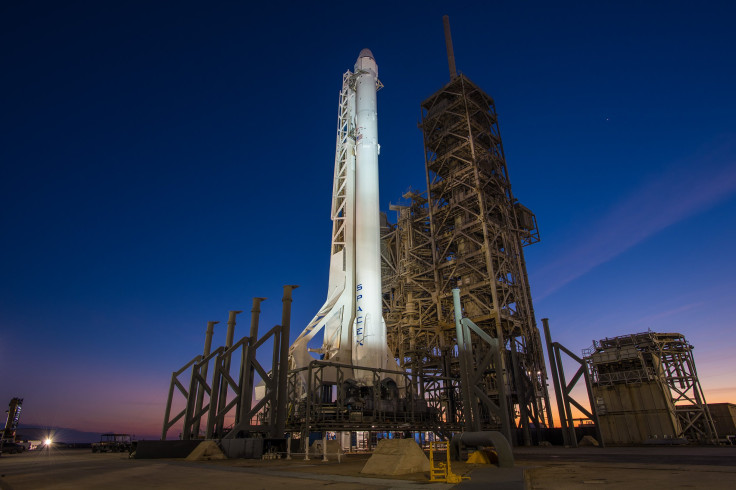SpaceX Launch Live Stream: Falcon 9 To Propel 10th Dragon Cargo Resupply Mission To ISS For NASA

SpaceX began testing its Falcon 9 rocket a few days ago, ahead of the Saturday morning launch that will send an unmanned Dragon cargo spacecraft to the International Space Station (ISS) on a resupply mission. And despite minor glitches that have occurred since the first static test-fire Sunday, the commercial launch for NASA is scheduled to go ahead at its planned time of 10:01 a.m. EST from the historic launch complex 39A at the Kennedy Space Center in Cape Canaveral, Florida.
Saturday’s mission will be SpaceX’s tenth cargo mission to the ISS for NASA, and both the Elon Musk company and the space agency seem excited about.
'Twas the night before launch, and the @SpaceX #Dragon cargo spacecraft awaits its liftoff at 10:01am ET on Feb. 18: https://t.co/m0lzYzTvTL pic.twitter.com/oxhcwHUOzZ
— NASA (@NASA) February 18, 2017
Falcon 9 and Dragon at historic launch pad 39A. Liftoff slated for Saturday at 10:01am ET. pic.twitter.com/fkAhMbZig5
— SpaceX (@SpaceX) February 17, 2017
The small problems that cropped up with the Falcon 9 — a small leak in the upper stage of the rocket — seem to be all fixed, as Musk pointed out.
Investigating a (very small) leak in the upper stage. If ok, will launch tomorrow. https://t.co/bQf97lywn4
— Elon Musk (@elonmusk) February 17, 2017
Looks like we are go for launch. Added an abort trigger at T-60 secs for pressure decay of upper stage helium spin start system.
— Elon Musk (@elonmusk) February 18, 2017
The Dragon cargo spacecraft will carry about 5,500 pounds of supplies, equipment and scientific experiments to the ISS, which it will take two days to reach. Astronauts aboard the space station will use the ISS’ robotic arm to capture Dragon and berth it. Once unpacked, it will be loaded with experiments the astronauts have completed and used equipment, and then, it will head back to Earth.
One of the important scientific instruments aboard the cargo spacecraft is SAGE III, a NASA satellite that will, from its vantage point on the ISS, monitor the levels of ozone and aerosols in the atmosphere.
From its new home on the space station, SAGE III will monitor Earth's ozone levels & aerosols. It launches Saturday aboard @SpaceX's #CRS10. pic.twitter.com/2MW0S7SlYu
— NASA Earth (@NASAEarth) February 17, 2017
The Falcon 9 rocket (or the first stage that will remain), after putting Dragon into orbit, will attempt to land at SpaceX facilities in Cape Canaveral.
The launch complex 39A is historic, because it was the same launch pad from where Apollo 11 took off carrying the first men to have walked on the surface of moon. SpaceX leased the launch pad in 2014.
SpaceX has been using its launch facilities on the West Coast since it resumed flight operations just over a month ago. Saturday’s liftoff will mark the company’s return to the East Coast. And if the Saturday launch window is missed for any reason, the next opportunity will be 9:38 a.m. EST on Sunday.
The launch will be telecast live by SpaceX and can be viewed here. NASA will also telecast the launch, with its prelaunch coverage starting 8:30 a.m. EST on NASA TV.
© Copyright IBTimes 2024. All rights reserved.





















